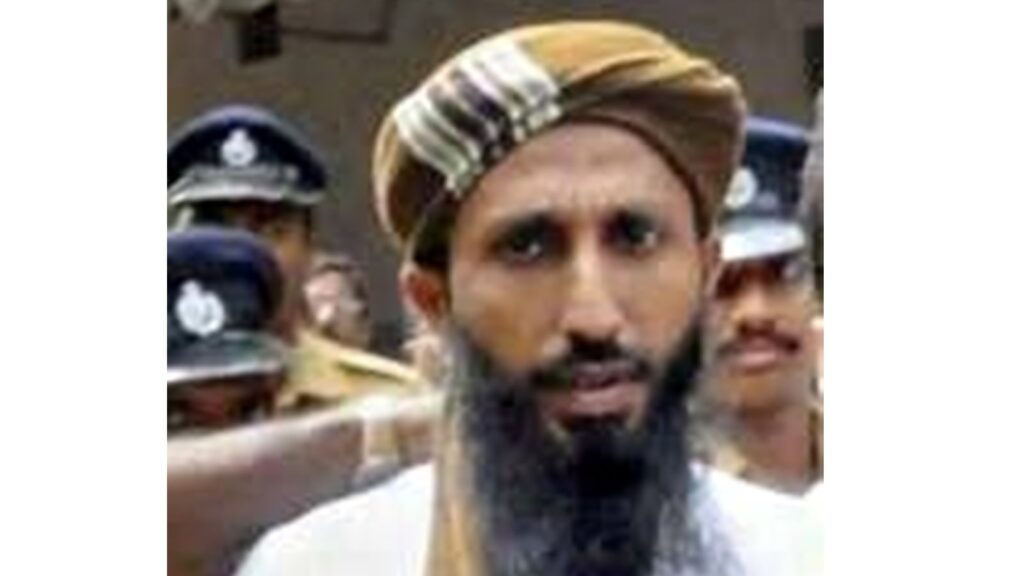An investigation by the National Investigation Agency (NIA) into the usage of mobile phones by a Lashkar-e-Taiba (LeT)-linked terror convict housed in the Bengaluru Central Prison has revealed that a prison psychiatrist was procuring mobile phones from a local mobile store for prices ranging from Rs 8,000 to Rs 10,000 and selling it to prisoners for Rs 25,000.
The NIA, which is investigating a prison radicalisation case, where the LeT-linked convict Thadiyantavide Naseer, 47, is accused of radicalising youths in the prison, arrested prison psychiatrist Dr S Nagaraj on July 8 for allegedly supplying mobile phones to Naseer and other prisoners at the Bengaluru Central prison. Naseer has been convicted in a terrorism case in Kerala and is currently under trial for the 2008 Bengaluru serial blasts case and the prison radicalisation case.
The NIA has now sought to question some prisoners in the Bengaluru central jail who were alleged recipients of mobile phones sold by the prison psychiatrist through prison intermediaries. A special court for terrorism cases has allowed the NIA to question a murder convict from Karnataka who is housed in the Bengaluru Central Prison as part of further investigations.
The NIA probe has found that the prison psychiatrist lived a lavish life with frequent visits to holiday resorts around the country and that one of his two mistresses allegedly helped him in procuring and supplying phones to prisoners in the Bengaluru Central Prison.
The NIA has found during its investigations that Dr Nagaraj purchased mobile phones from a mobile store near his house and “illegally took/smuggled them into the prison and further handed over the said mobile phones to the convicted prisoners”.
The prison psychiatrist took Rs 25,000 per mobile from the prisoners while he purchased the mobile phones at prices ranging from Rs 8,000 to Rs 10,000, the NIA said in court filings. The NIA is investigating the source of funds for convicted prisoners like T Naseer, who are lodged in the high security barrack of the prison, to buy cell phones. Naseer is alleged to have been sold phones at a higher cost by the psychiatrist than other prisoners.
“These mobile phones are purchased under the pseudo name of Raghu. He has also disclosed that the mobile phone used by accused No.1 T Naseer was also purchased by him from Priya mobile in the pseudo name of Raghu,” the NIA court has noted. The psychiatrist allegedly received cash from the convicted prisoners for smuggling phones into the prison.
Story continues below this ad
The special court has directed prison authorities to allow NIA officials to conduct further investigations in the prison on the phone supplies and usage by T Naseer and others.
Prison radicalisation case
The LeT-linked Naseer, who has been in the Bengaluru prison since 2009, was accused in 2023 of being a key player in a prison radicalisation initiative where he allegedly radicalised eight undertrial youths lodged in the prison from 2017 to 2023 to take up jihad when they are released from prison. Seven youths are arrested and one is still missing.
Seven of the eight prisoners arrested in the case, including Naseer, moved an application in the special court on July 7 to plead guilty in the prison radicalisation, terror conspiracy case, which the NIA is currently investigating.
On July 8, the NIA arrested three more people in the case: Dr Nagaraj, a Central Armed Reserve policeman; Chan Bhasha; and Anees Fathima, the mother of Junaid Ahmed, a missing accused in the radicalisation case, for allegedly aiding the prison activities of Naseer.
Story continues below this ad
Apart from Naseer, the other arrested accused in the prison case are Syed Suhail, 24; Mohammed Umar, 30; Zahid Tabrez, 27; Syed Mudassir Pasha, 29; Mohammed Faisal, 29; Salman Khan, 29; and Vikram Kumar alias Chota Usman, 25.
Among the three arrested on July 8, Anees Fathima is accused of facilitating financial transactions between various accused persons in the conspiracy case, the policeman Pasha is accused of providing police escort details of T Naseer to other accused persons on payment of bribes, and the psychiatrist Dr Nagaraj is accused of smuggling phones into the prison.
The investigation of the prison terror conspiracy case was taken over by the NIA in October 2023 after the Bengaluru police conducted the early investigations. The probe agencies have alleged that the accused procured arms, ammunition and digital devices for terrorist activities after they were radicalised in prison by Naseer.
The initial Bengaluru police probe indicated that Naseer, who had been in prison for over 13 years, radicalised a few members of a group of 20 youths who were lodged in the Bengaluru central prison between 2017 and 2019 for the murder of a businessman in Bengaluru in October 2017.
Story continues below this ad
The police alleged that Naseer inspired Junaid Ahmed, 29, one of the 20 youths who were arrested in 2017, in the case of the murder of the businessman, to take up the cause of his religion and facilitated the creation of a module. Junaid Ahmed left the country for Dubai around 2021 and has not been traced yet.
Naseer allegedly radicalised Junaid’s parents, Anees Fathima and Abdul Basheer, when they were lodged in the Bengaluru prison over a 2017 sandalwood theft case.
“Naseer had orchestrated the radicalisation and subsequent criminal activities, including plans to facilitate his own escape enroute to the court from the prison and a conspiracy to further the operations of the proscribed terrorist organisation LeT,” the NIA said last year.
Naseer who was arrested in 2009 by the Bengaluru police for the 2008 serial blasts in the city which killed one person is among 18 members of the banned Students’ Islamic Movement of India (SIMI) convicted for seven years in 2018 by an NIA court in Kerala for being part of a terror training camp at Vagamon in Kerala in 2007.


